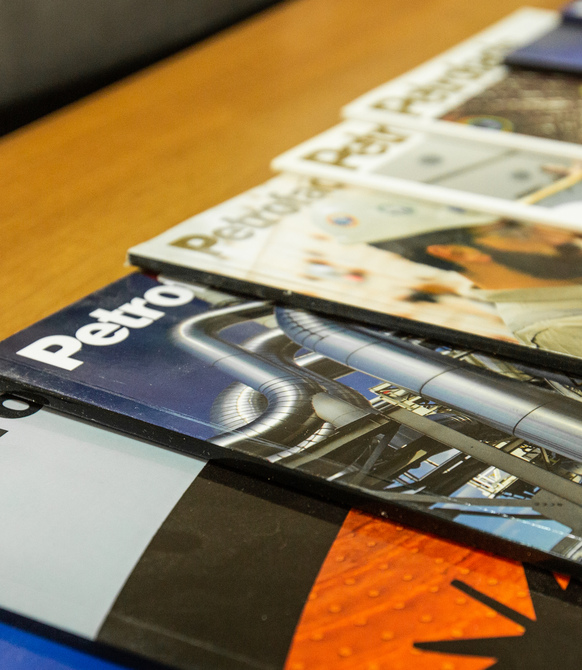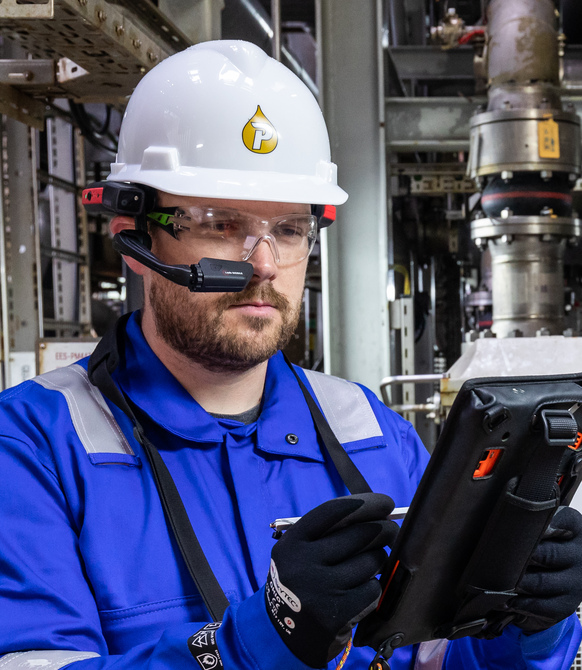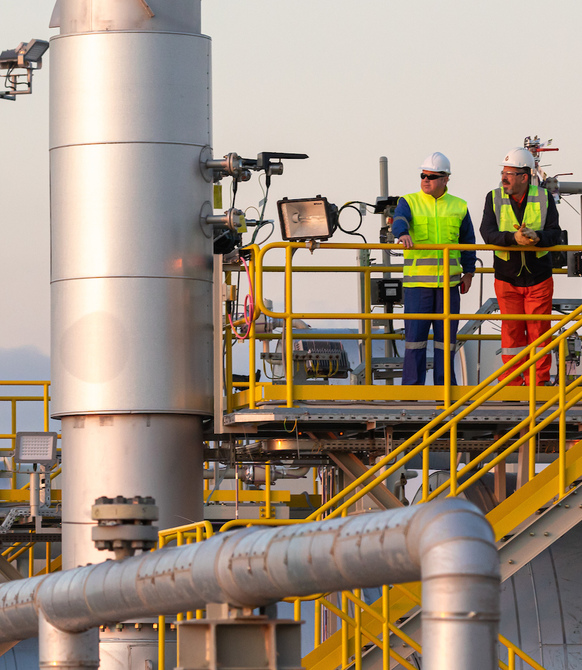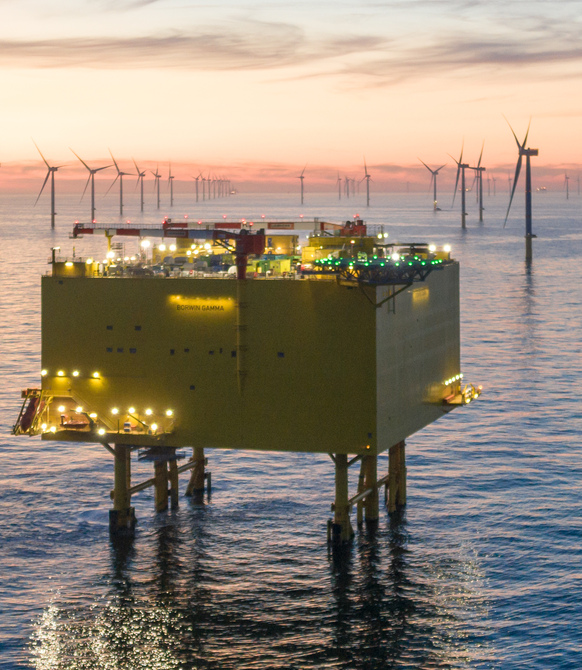20 January 2015
The future in their hands
Craig Muir and Charlotte Davis may be separated by thirty years of experience, but they share a passion for their discipline, and a vision of its future. Craig Muir, Petrofac’s managing director of Engineering and Consulting Services, and Charlotte Davis, a process engineer a few years into her Petrofac career, are united in their drive to see engineering and engineers flourish. Here they share their stories and opinions on life as an engineer with Petrofac.
Why did you choose a career in engineering?
Charlotte: I’ve always been interested in science and maths, and during my studies I came across the ‘whynotchemeng’ campaign set up by the Institute of Chemical Engineering. This gave me an insight into what chemical engineers do and the scale of the projects. It sounded really interesting and a good way to apply my skills and had great career prospects.
Craig: It was a little different for me when I started out. I come from an area in Glasgow surrounded by industries and the shipyards, where engineering tended to be the mainstay. Originally, I wanted to go into the financial industry as I enjoyed that, but I started doing technical and mechanical work for John Brown on their gas turbines: it gave me a glimpse into the engineering side of things and made me see how you can broaden your opportunities.
At that time, manufacturing in the UK was beginning to decline, and our differentiation globally was in engineering and technical delivery. So that was the element that attracted me: engineering could keep us ahead – a ‘value add’, as we would call it today. Manufacturing was always going to be under pressure, so you had to move up the value chain to succeed.
What happens when you make the transition from school or university to the workplace?
Charlotte: If I’m honest, I was terrified on my first day. When you are at school or university, you study the principles, but once you actually get into work, you realise that it’s not just about pure engineering; it’s about all the different interactions you have to have with different kinds of engineers and disciplines.
Craig: Exactly. That is one of the biggest challenges we have: we have lots of young engineers coming in with a strong and varied technical bias, but there are so many variables in defining and executing projects that you need more than that. Many engineers starting out have a tendency to come in with the ‘answers’, but the important shift is to get them asking the right questions. Understanding the technical aspect of projects is the most important starting point; that does give you a broad capability. But the next big step, once they get there – and that’s usually when we see them at Petrofac – is, am I asking the right questions to make this a successful project? And once they get to that stage, you see them flourish.
What structures are in place in Petrofac to support that development?
Craig: Things are still evolving. We’re bringing in many more young engineers and have been putting programmes in place for them. Over the next couple of years, a lot of these people, like Charlotte, are the pioneers for this next stage of the company. They will be central to our success. For the company, this cannot not be successful. That’s not an option. I believe we need a blend of formal structures and encouraging individuals to take responsibility for themselves, both as young engineers and also as mentors. The Petrofac Academy gives us a strong foundation, wherein all incoming graduates are assigned a line supervisor and mentor, but we need to continue to develop mentors. Most importantly, however, you have to take chances on people: you’ve got to give some of the young engineers coming in just that little bit of push…
Charlotte: Yes. You learn so much more when you’re actually on a project and being given a lot of responsibility. As long as you’ve got someone to guide you, to say ‘maybe you should or shouldn’t be doing things that way’, that really helps.
What is the best route to a successful engineering career in Petrofac?
Craig: The biggest challenge is whether to take the technical route or the management route. Too many people think the management option is the easier one. For me, the important thing is to build the right technical bias in the first three to five years. It’s that that creates the foundation for people to do whatever they want. And too many, within a year or two years, want to jump straight to being a project engineer.
Charlotte: I’ve seen quite a lot of that. I want to stay on the technical side at the moment because I want to become a chartered engineer. I’d like to achieve that within the next year or so, and I feel like I’m in a good position for that, due to the opportunities and responsibilities I’ve been given. You can manage a lot better if you have a strong technical background.
Craig: Absolutely right. I’m keen on making sure that there is a strong technical core at the heart of all of our young engineers’ capability. The other thing which is equally important is to learn about disciplines other than your own. If you’re too single-discipline focused, you don’t understand how important you are to others, and how important they are to you.
How do engineers work within the Petrofac ‘team’?
Charlotte: Communication is key – you need to be able to talk to anyone, to ask the right questions, particularly of other disciplines. At the beginning, you might feel like you don’t know your own technical area as well as the people you have to talk to, but you gain more confidence by asking those questions and talking to other disciplines.
Craig: The multi-discipline issue is the key one. You need to be able to think not just in your own discipline, but to be able to work with others in their discipline. That means you’ve got to be eager to learn. Charlotte brought up a good point: a lot of it is about communication, and being able to disseminate a lot of information and detail. In an environment like ours, you have to be part of a team – you can’t just work on your own.
For example, while process engineering may set up a lot of the fundamentals in a project, you also need to interact with mechanical engineers, instrument control, and then piping and the electrical side. If you understand their drivers – what keeps them awake – you can start to address those issues earlier in the design stages and eliminate those issues for them, saving time and money. This ‘value’ can be unlocked if you have a broad understanding across the disciplines.
The full version of this interview is available in Petrofacts magazine








